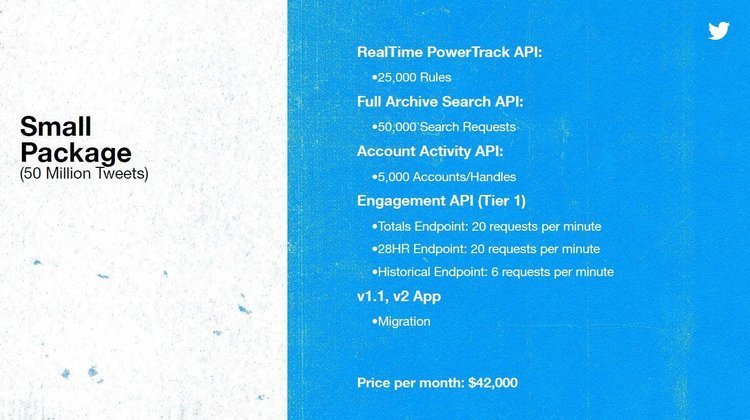Meta vs Mastodon: Battle for the Future of Decentralized Social Media
Today In Digital Marketing is a daily podcast and daily newsletter showcasing the latest in marketing trends and updates. This week, Tod touches on:
Instagram Will Join the "Fediverse"
Advertising’s Disappointing Return to Gender Stereotypes
Twitter's Cheapest API Plan Will Cost $42,000... Per MONTH
UK GDPR Draws Response from Ad Industry
Meta Pulls the Plug on its ‘Reels Play Bonus’ Program
TikTok Updates
AI can read brain scans
Below is the transcription from this week’s topics
Instagram Will Join the "Fediverse"
Meta is building a Twitter competitor.
The company confirmed today that it is working on a decentralized text-based social app, codenamed P92. MoneyControl quotes internal documents saying the app will be Instagram-branded and let users log in with their Instagram credentials.
Most interestingly, this new platform is said to support ActivityPub, the decentralized social networking protocol powering Twitter rival Mastodon and other federated apps.
Sources have also told media that legal and regulatory teams are already investigating potential privacy concerns around the app so they can be addressed before launch.
How much of a threat does this pose to Twitter?
I asked Joe Karasin, CMO of DigitalWill.com — he's been advertising on Meta's platform for a decade:
Not much at all... Consumers are tired of meta. Meta has broken the trust of the consumer over the years. They're a little late to the game — they saw that Mastodon was having success with a similar idea. and they decided, well, we're going to do that too.
I can't imagine them not trying to monetize this in some way. And what would that be? Would they charge subscription? Would they start showing advertising eventually?
I just don't see it being a threat to Twitter — even when Twitter saw its Elon Musk Exodus, and people ran to Mastodon, Twitter really hasn't gone away.
The project's details are scarce. The product is still under development, sources said, and there is no timeline for its release.
Image: Canva
ADVERTISING’S DISAPPOINTING RETURN TO GENDER STEREOTYPES
Back to the 1950s? A new study has revealed that despite women being featured in ads more than ever, women still lack unbiased representation in advertising in 2023.
According to the report, the majority of people in ads across 2021 and 2022 were women, while 40% were men.
Last year, however, men were cast in professional roles 75% more often than women compared to 2021 and 30% more often in leadership roles. While women were cast 50% more often in domestic roles.
These trends were even more pronounced when age and race were taken into consideration.
Ads featuring women with lighter skin tones accounted for a quarter of all tracked spend, while ads featuring women with darker tones accounted for only 5%. Meanwhile, ads featuring lighter-skinned men in professional or leadership positions received 4x the amount of spend than those featuring darker-skinned women.
In terms of age, ads featuring women over 60 increased 220% year-over-year. The increase was, however, from 0.3% to 0.9%, representing less than 1% of total advertisements.
(Data was provided by CreativeX's analysis of over 10,000 ads)
Images: CreativeX
TWITTER'S CHEAPEST API PLAN WILL COST $42,000... PER MONTH
Looking to access Twitter's API? It'll only cost you $42,000 PER MONTH.
Using Twitter's free API has long been a vital resource for researchers studying social media conversations. However, Wired reported today that those days may soon be over, as new pricing plans indicate that most organizations will now be outpriced.
According to internal documents, the company is now offering three levels of Enterprise Packages to its developer platform. With the cheapest 'Small Package,' you get access to 50 million tweets per month for just $42,000.
Higher tiers offer researchers and businesses access to larger volumes of tweets:
100 million will cost $125,000 per month.
While access to 200 million tweets will set you back $210,000 per month.
Subscribers to the cheapest package will be limited to 25,000 rules for filtering data from the Real Time PowerTrack API, and 50,000 queries from the Full Archive Search API. Moreover, researchers will have a limit of 5,000 Twitter handles they can analyze using the Account Activity API, as well as a maximum of 20 requests per minute for the Engagement API Totals Endpoint.
While this dataset may seem substantial, the report noted it only represents 0.3% of Twitter's monthly output, making it far from a comprehensive picture of the platform's activity. Previously, researchers were able to access 1% of all tweets through its free API.
These figures have been confirmed with other existing free API users, who received emails stating the new pricing plans will take effect within months.
Twitter did not respond to a request for comment.
Image: Twitter via Chris Stokel-Walker
UK GDPR DRAWS RESPONSE FROM AD INDUSTRY
The UK government's revised Data Protection and Digital Information bill, which is meant to be a post-Brexit alternative to GDPR, is making its way through the UK Parliament.
The new bill aims to create a simpler, more business-friendly, and more flexible framework than GDPR, for businesses, while also reducing paperwork, supporting international trade, and introducing AI safeguards.
However, Adweek reported today that the bill is causing concern for advertisers due to the changes proposed to the cookie consent process and user experience, especially in regard to the reduction of the volume of consent pop-ups users receive, which enables data collection.
New Regulations
The bill also includes an increase in fines for companies that make nuisance calls and texts up to 4% of their global revenue.
According to the report, advertisers are concerned about further confusing the already complex digital advertising space, and companies want to avoid having to manage different data regimes across international markets.
The UK arm of the Internet Advertising Bureau is urging lawmakers to extend cookie consent exemptions for advertising and measurement, describing those as "non-intrusive functions."
META PULLS THE PLUG ON ITS ‘REELS PLAY BONUS’ PROGRAM
While other platforms are juicing up their monetization features, Meta is ending its Reels Play bonus program on Instagram and Facebook in the U.S., which pays content creators when they hit certain goals for views on their videos.
Business Insider reported yesterday that the company won’t offer any new or renewed Reels Play bonus deals, but will honour existing commitments over the next 30 days.
A spokesperson for the company said creators can still earn money through things like subscriptions and brand partnerships.
Instagram head Adam Mosseri said the company was pausing the program to focus on making it "ROI positive."
Image: Canva
TIKTOK UPDATES
A couple of updates from TikTok to share with you.
TikTok Wins U.S. Trademark Trial
First, the company has won a trademark lawsuit against British video-editing company Stitch Editing Ltd, as a federal jury in L.A. ruled that TikTok's Stitch feature does not infringe on Stitch Editing's trademark rights.
Stitch Editing had claimed that TikTok's use of the Stitch name for its video-editing feature would confuse consumers and harm its brand, and had requested $116 million in damages.
TikTok argued Stitch Editing's trademark does not give it a monopoly on the use of the word "Stitch" to refer to video editing, and the court ruled in its favour.
TikTok Dentsu
Next, TikTok has partnered with global marketing agency Dentsu Digital to offer alternative web tracking ahead of the cookiepocalypse. The new process will let advertisers track user data through the TikTok Events API, which will be integrated into X-Stack, even as cookie tracking is phased out.
Image: TikTok
AND FINALLY…
A new study has found that AI can read brain scans and re-create images a person has recently seen.
How does it work?
Researchers added additional training to the standard Stable Diffusion algorithm, by teaching the AI model to link functional magnetic resonance imaging data with images participants looked at. They also trained a second AI model to link imaging data with text descriptions of the pictures the study participants looked at.
Although there are some noticeable differences between the recreated images by our robot overlords and the originals, they are eerily similar — meaning AI can officially read our minds now.
Image: Creative Commons
Credit to Tod Maffin and the Today In Digital Marketing podcast, Produced by engageQ.com







